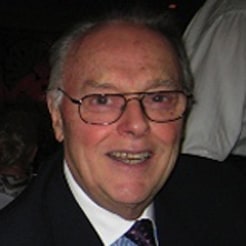
Leading a “Liberating Life”
“Liberation” was a social, religious, political, and organizational movement of the Twentieth Century. According to Webster, the word “Liberation”, a noun, means “a movement seeking equal rights and status for a group”. But being a noun, the word signifies something static. Thus, I prefer the use of the gerund – a verb – “liberating”, which signifies something dynamic, something that is ongoing.
Over the course of my nearly 60 year professional career, I have experienced and participated in four different “liberating” movements.
During the 1960s, I practiced “Liberating” theology, as a missionary priest ministering in the Dominican Republic. “Liberation Theology” was a movement within the Catholic Church in Latin America in the 1950s and 60s. It arose principally as a moral reaction to the poverty and social injustice in the region, where we focused more on the community and “personal actualization in the here and now, rather than individual salvation in the future”. This is the period of my life when I was heavily influenced by such theorists and practitioners as Hans Kung, Camilo Torres, and Ivan Illich.
During the 1970s, I practiced “Liberating” education, (a preparation for living, for wondering why: instruction and experience in both technique and vision – the ultimate combination in education, where the three most important aspects of learning were history, imagination, and compassion; where simplicity was foremost, humane values transcended technological values, and, where democratic values overcome the desire for exclusivity), studying as a graduate student at the University of Toronto. This is the period of my life when I was heavily influenced by such theorists and practitioners as Paulo Freire, Maya Angelou, Herbert Marshall McLuhan, and Carl Rogers.
During the 1980s and 90s, I practiced “Liberating” management, (the movement of government services towards a more modern vision of the state, consistent with the use of business techniques and practices; a greater focus on customer or client need; and, use of and responsiveness to technological and societal advancements), working as a Civil Service manager for the Canadian Federal Government. This is the period of my life when I was heavily influenced by such theorists and practitioners as Peter Drucker, Tom Peters, Steven Covey, and Henry Mintzberg.
Now, during the first two decades of the 21st century, I am practicing “Liberating” leadership (the purpose of which is to liberate talent; energy, communication and trust as bywords; where personal accountability and respect for individual boundaries become vital; and where the placing of responsibility for action and decision-reaching upon the appropriate person becomes critical) performing as a global professional services consultant. In this latest period of my life I am heavily influenced by such theorists and practitioners as Warren Bennis, Marshall Goldsmith, James Kouzes and Barry Posner, Simon Western, Robert Anderson, and Suzanne Bates.
Over my next few columns I will take a more in depth look at “Liberating Leadership”.
- About the Author
- Latest Posts
Vice President Emeritus for Learning Technologies Donald Smith, Ed.D, CPT, headed ME&A programs in learning, leadership, and performance enhancement. He stayed with the firm in his retirement, bringing more than 65 years of experience as a coach, designer, facilitator, evaluator, manager, educator, and organizational change architect in more than 40 countries. He is affectionately known as ME&A’s MENCH.


